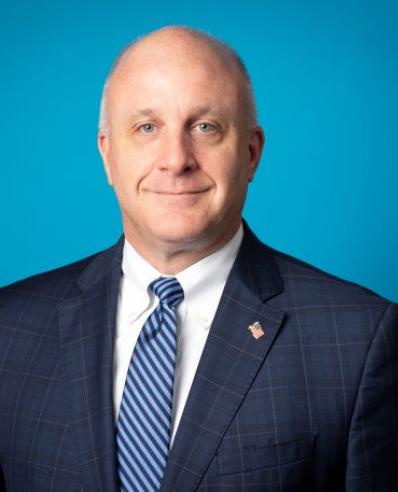Even for high-growth technology companies that performed fairly well during the last 12 months, 2021 capital-spending decisions are being made with significant restraint and apprehension.
The ongoing rollout of promising COVID-19 vaccines notwithstanding, the pandemic’s far-reaching effects on consumer behavior, the labor market, wages, office space, technology and supply chains, to name a few, have made it more difficult for chief financial officers to make ordinary budgeting and big-ticket spending decisions this new year. To complicate matters even further, CFOs are contending with a lot of uncertainties around how the incoming Democrat-led government in Washington, D.C. will respond to the challenging economy.
Gridlock and antsy folks
These concerns have been front and center in Protiviti’s recent roundtable conversations with several software and high-tech company CFOs. Among this group of finance leaders, depending on firm type and size, the level of concern varies. For example, some are concerned about what to do with excess cash – hold on to it for now or pursue major acquisition opportunities created by the volatility in the market? Others worry more about the potential in 2021 for increased capital gains taxes, which could spur mergers and acquisitions and IPOs. For acquisitive tech firms, potential tax code changes could increase the pipeline of acquisition targets, particularly for privately held companies that would be looking to sell before new tax laws go into effect.
Views on the potential impact of a new Biden administration on the tech sector also vary. Before Democrats won the two key Senate races in Georgia, there were many “antsy folks” in the tech space watching the race very closely. Software companies, like those active in payroll processing for small and midsize businesses, were looking forward to the prospect of gridlock in Congress because it portends less volatility for their business. As one CFO put it, “If there is gridlock, there won’t be as much radical change.” While both the Senate and the House will now be controlled by Democrats, making gridlock less likely, the narrow margins in both houses also mean individual members of both parties could hold up legislation on their own.
Plethora of chairs and spam recruiting networks
The new labor model, driven by the mass migration to remote working since March 2020, has also created budgeting issues. Perhaps the most significant has to do with underutilized office space. A number of tech companies are reviewing their real estate footprints, especially in high-cost areas. Several CFOs indicated they are allowing their leases to expire and have no intention of acquiring new office space this year. The CFO of a California-based company that planned to shut down its office space this year suggested that organizations could establish a small or temporary workspace that employees could occasionally pop into.
Another CFO of a West Coast-based tech firm said the company is allowing its employees to help themselves with the office furniture. “We’ve got a plethora of chairs that nobody is going to use for a long time,” he said.
On the hiring front, the approaches are mixed and complicated. Remote work has allowed tech companies to broaden their talent search geographically. The ability to cast a wider net has meant firms can find stronger candidates outside traditional tech hubs like Silicon Valley at a lower cost. “Folks don’t need to live in New York City anymore, or in Chicago,” one CFO said. “They can, or they can move to Santa Monica, if that’s where they really want to live, and still work for Midwestern companies that need talent but previously had a harder time attracting folks in Wisconsin or Cincinnati or Omaha.”
Another CFO has recommended that the company pursue a hiring strategy in lower-cost locations but admits additional compliance costs must be considered if it opens new offices in states where it currently has no presence.
Meanwhile, the increased mobility has opened up the door for larger firms to poach top-performing employees (like engineers, developers and even CFOs) from competitors. One CFO said that for a while this year, its top talent was not getting picked off or receiving the usual job solicitations. This has changed in the last 30 to 60 days. “Things are thawing and definitely some top talents are getting solicited much more aggressively now,” according to the CFO.
Another CFO put it this way: “I’m getting a ton more activity just from the spam recruiting network.”
While remote work offers increased flexibility for all employers and employees, some organizations are finding it necessary to take a stance on where current workers can be situated. One CFO has denied requests from employees to move to new locations and claim their home office as their headquarters. The concern is that this would allow employees who may be considered “non-regrettable attrition” to continue to work with too little oversight. Another CFO said it is still hiring closer to home since it does not want to lose the benefits of employees working in the office when conditions return to normal.
Don’t want to ‘cut our nose off to spite our face’
Organizations are leaning on CFOs to find creative ways in their budgets to keep employees happy and productive. Stipends for home office setups and advancing paychecks are among the things that companies are doing for their employees. One CFO that made the difficult call nine months ago to eliminate 401(k) matching and reduce executive compensation (did that from a cash perspective) said a decision has been made to reinstate those perks as its business returns to a more stable footing.
According to this CFO, the company intends to stick to its mantra of keeping the firm and its employees as healthy as possible, adding that the organization does not want to “cut our nose off to spite our face.”
Read Protiviti’s latest paper on finance priorities for the tech industry: For TMT Finance Leaders, Focus Remains on New Labor Model and Bolstering Resilience in 2021.
Read additional posts related to the technology, media and telecommunications industry.






